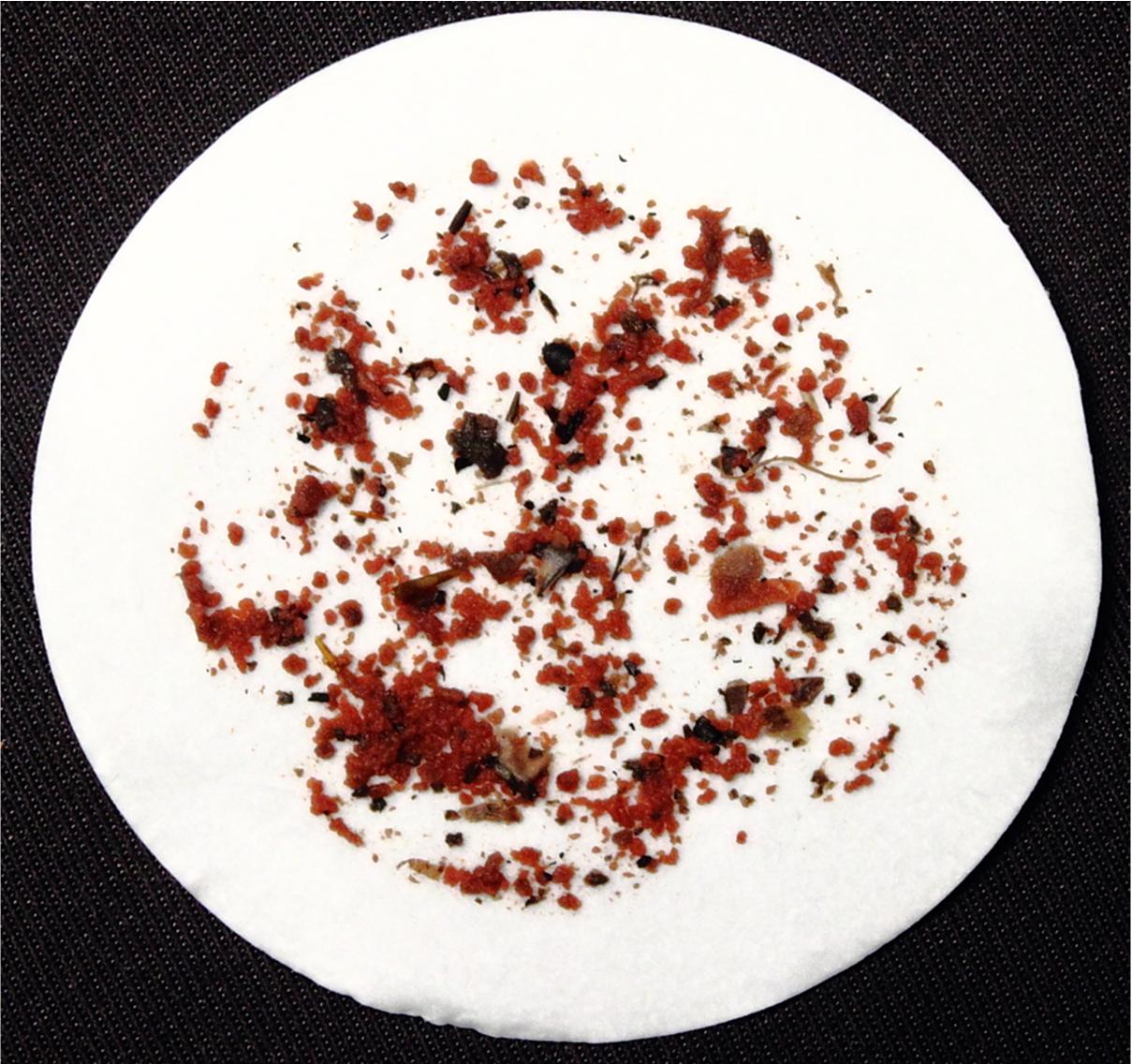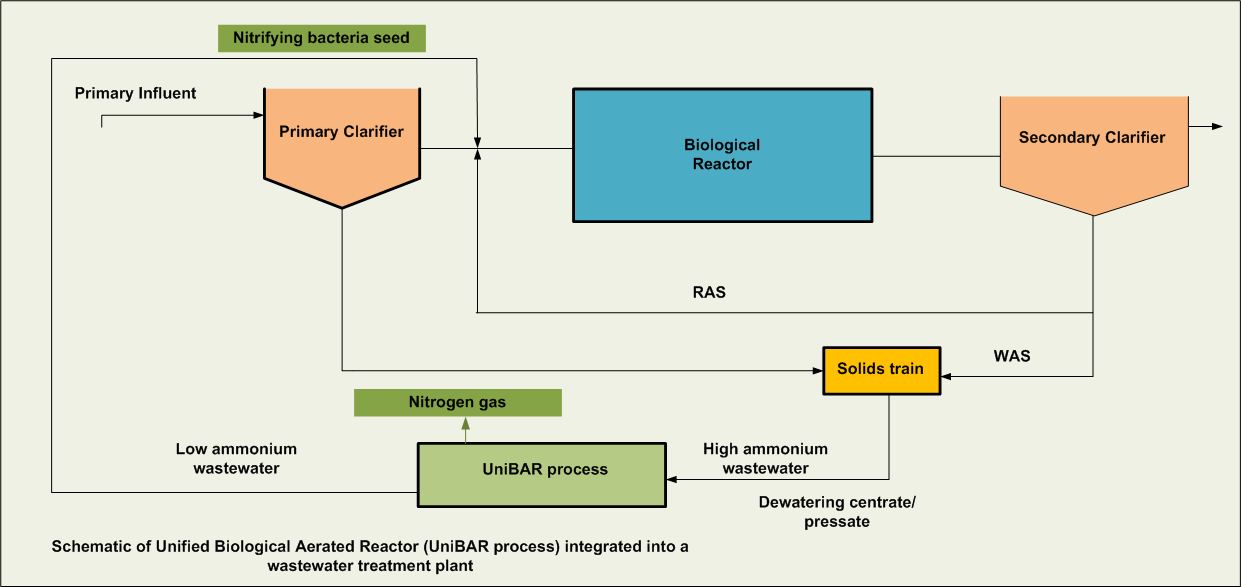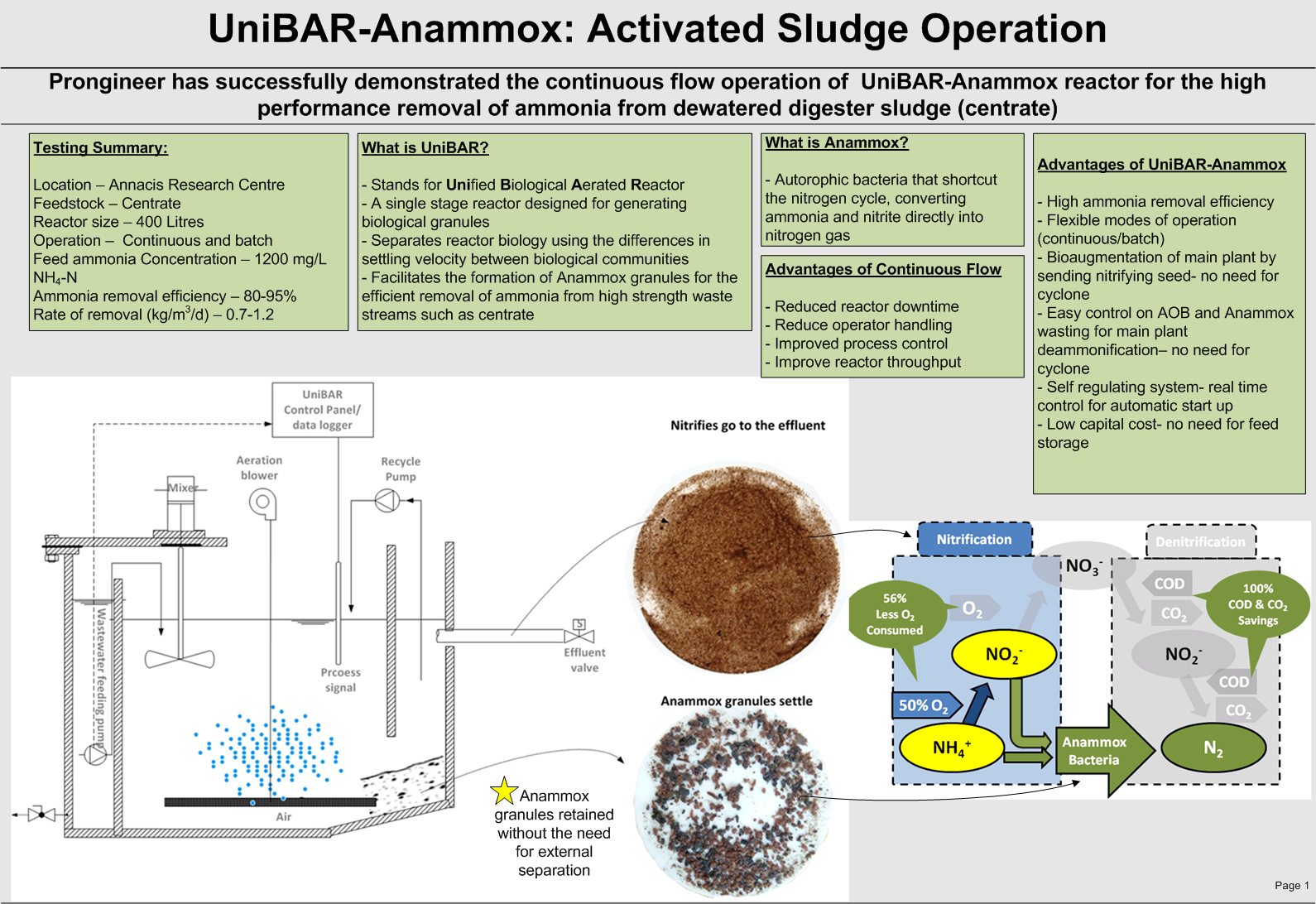Unified Biological Aerated Reactor (UniBAR)
Unified Biological Aerated Reactor (UniBAR) is a biological wastewater treatrment process that can remove ammonia through a newly discovered biological nitrogen removal pathway- anammox- in a single bioreactor while being flexible enough to function in other modes of operation to drive more applications.
While the UniBAR process is useful for treating variety of wastewaters, it is directed in particular to the biological removal of nitrogen from high ammonia streams found in municipal, agricultural or industrial wastewaters. The conventional approach for removing ammonia from wastewater is biological, based on the use of microorganisms to convert ammonium to nitrogen gas through a series of steps referred collectively as nitrification and denitrification. The performance of conventional nitrification-denitrification for treating high ammonia wastewaters is limited to the availability of organic carbon, thereby necessitating the addition of external organic carbon to drive denitrification. This imposes the disadvantages of high operating costs; treatment costs associated with the added organic carbon donor substrates for denitrification, high carbon footprint, elevated sludge production and associated removal costs.

Photophraph of anammox granules recovered from UniBAR process removing ammonia from centrate at JAMES Wastewater Treatment Plant.
UniBAR process can be operated in two modes of SBR or activated sludge. The below photo shows the UniBAR process integrated into a typical wastewater treatment plant flow scheme. UniBAR process will be will be used to treat dewatering sludge liqours ( centrate or pressate).

